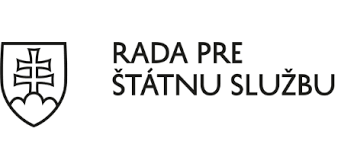In Slovakia, the government is looking to win back civil servants who have resigned
Published in the Nr 43 - March 2022
CLOSE-UP
According to a study conducted in 2018, Slovakia, along with four other countries (1), has one of Europe’s highest employee turnover rates (due to other reasons than retirement). It is an issue that the country’s newly formed Civil Service Council, an independent coordinating and monitoring body, decided to address in its first year of existence.
It carried out an in-depth survey to pinpoint the timelines for employee departures and the reasons behind them. Receiving a more appealing job offer was by far the leading reason and, in almost two-thirds of cases, resignations were handed in during the first year of employment.
Next, there were sundry reasons related to dissatisfaction (with the job, with the team and/or manager or, more broadly, with the employer’s strategy).
Reasoning that a failed onboarding experience is something they should be able to rectify, it was decided to compile a list of civil servants who had resigned and could be offered a new position as a priority.
.

It's a way of giving the government a second chance to win over the recruits it was unable to retain when they were first hired.
Former employees must expressly agree to be registered in this database, which contains only basic personal data (marital status, diplomas and qualifications) and details of the position held and the grounds for leaving, which are important to mitigate the risks of failure.
There are now three venues for posting vacancies, with one of them (internal +) focusing on this target group. This means that they can apply on an equal footing with incumbent staff.
Although it’s easy to imagine these former employees would have turned the page, the gamble seems to be paying off. Many of them have already responded to the offer to return to the public sector, whose image has been improved.
Recruiting departments also see real advantages in the fact that these employees are already familiar with the basics and hierarchical structures, and can integrate and find their feet more quickly.
A task force has been assigned to assess the system on an annual basis and make recommendations to improve it, with the aim of potentially extending it to a wider range of civil servants.
1 Bulgaria, Hungary, Romania and Sweden (EUPACK study).
- For more information: vlada.gov.sk (in Slovak), (machine translation into English)
